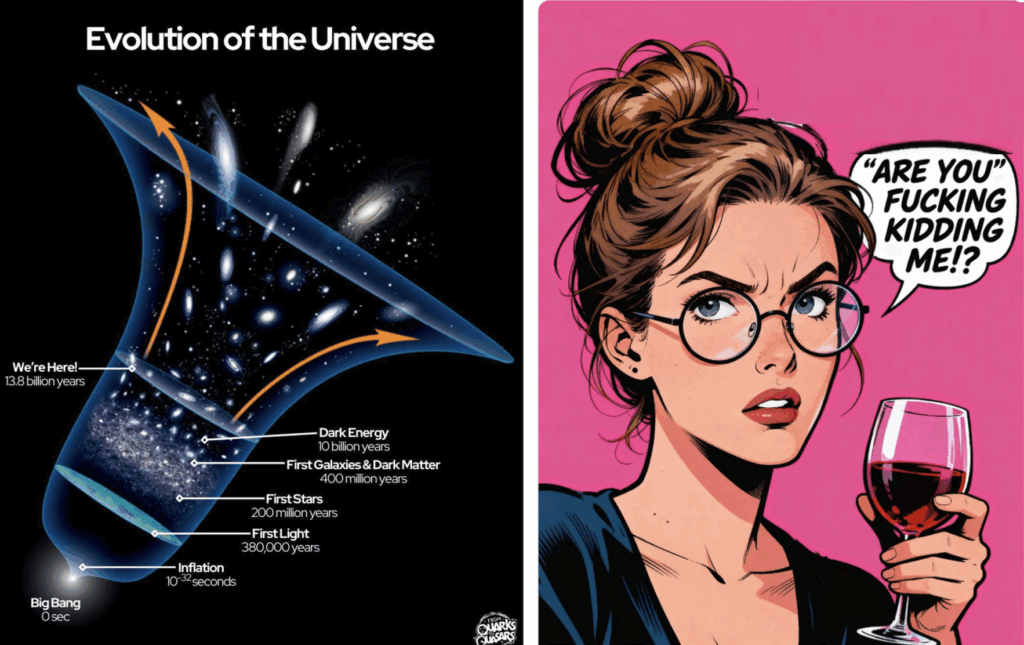
After (one can no longer say ‘ever since’) the Copernican revolution in science, scientists came to accept that their research could have been done by anyone, anywhere in the universe with the conclusions of their work remaining unchanged. Thus, codified ‘laws’ of nature would be the same no matter who did the codification or where it was done. If one could disenthrall oneself sufficiently, one could suppose that the universe as a whole would look the same from any vantage. But acceptance that the entire universe began a mere thirteen, fifteen, or however many billions of years ago has changed all that. Science is back to dealing with the presumption of a sudden (even though not miraculous) origin of the universe. The Big Bang is treated as fact upon which theoretical endeavors proceed. It diverts scientific efforts into attempts at placing cosmological facts into a chronological, rather than merely logical, order. Whether one believes that the universe originated at a point singularity in time, or time itself began with the bang, continues to occupy the minds of brilliant men.
Darwin secured the word ‘evolution’ in scientific dictionaries, and it has become an accepted success story of science. But that word, and so many other scientific terms, are often used in contexts to which they do not apply. So at this juncture of evolution of humanity, the word itself has favorable connotations in the sense of seeming to legitimize whatever might be attached to the term. The Copernican revolution is in decline, and the evolution revolution is in ascension.
But the misuse of words leads to bad thinking. ‘Dark’ matter isn’t dark; it can’t be seen at all, i.e., it’s invisible. If one used the right word, one might realize that a name has been given to an effect that is not understood. Recognizing – and acknowledging – that we don’t understand an effect would motivate scientific investigations rather than stifling them. The same thing goes for ‘dark energy’ – an observed effect that defies accepted theory, and for which there is no comprehensible cause. What’s wrong with ‘I don’t know – yet’ in a scientific context?
Of course science is not a war of words. It is descriptive, for which words are prerequisite. But it evolves (if you will) through paradigm shifts and ‘revolutions,’ it can be contentious, and all too often words are used for strategic advantage rather than as necessary in descriptions of the discoveries that are made. And, as everywhere in human culture, marketing works.
Like it or not, ‘evolution of the universe’ is a thing – a noun phrase at least – that has been accepted as though it were meaningful even if it requires a distortion of the original definition of the term in its original application. Although only claimed to have been ‘observed’ until the James Webb telescope began to ‘actually’ observe it differently, changes have occurred and continue to occur in the state of our universe. The aging of an individual does not constitute what can legitimately be called evolution. There is, for example, no adaptation to its environment – the universe is the environment in this case. Although… as with the usual misuse of words there is now a ‘multiverse’ that is bandied about, of pretend universes where our accepted laws of nature either do not apply or would apply differently.
So, yes, Virginia the universe has evolved and, sure, there is a Santa Clause, if what you mean by that is that Christmas is filled with the spirit of giving. But don’t treat such misused words as facts upon which to base your logical arguments.
Leave a Reply